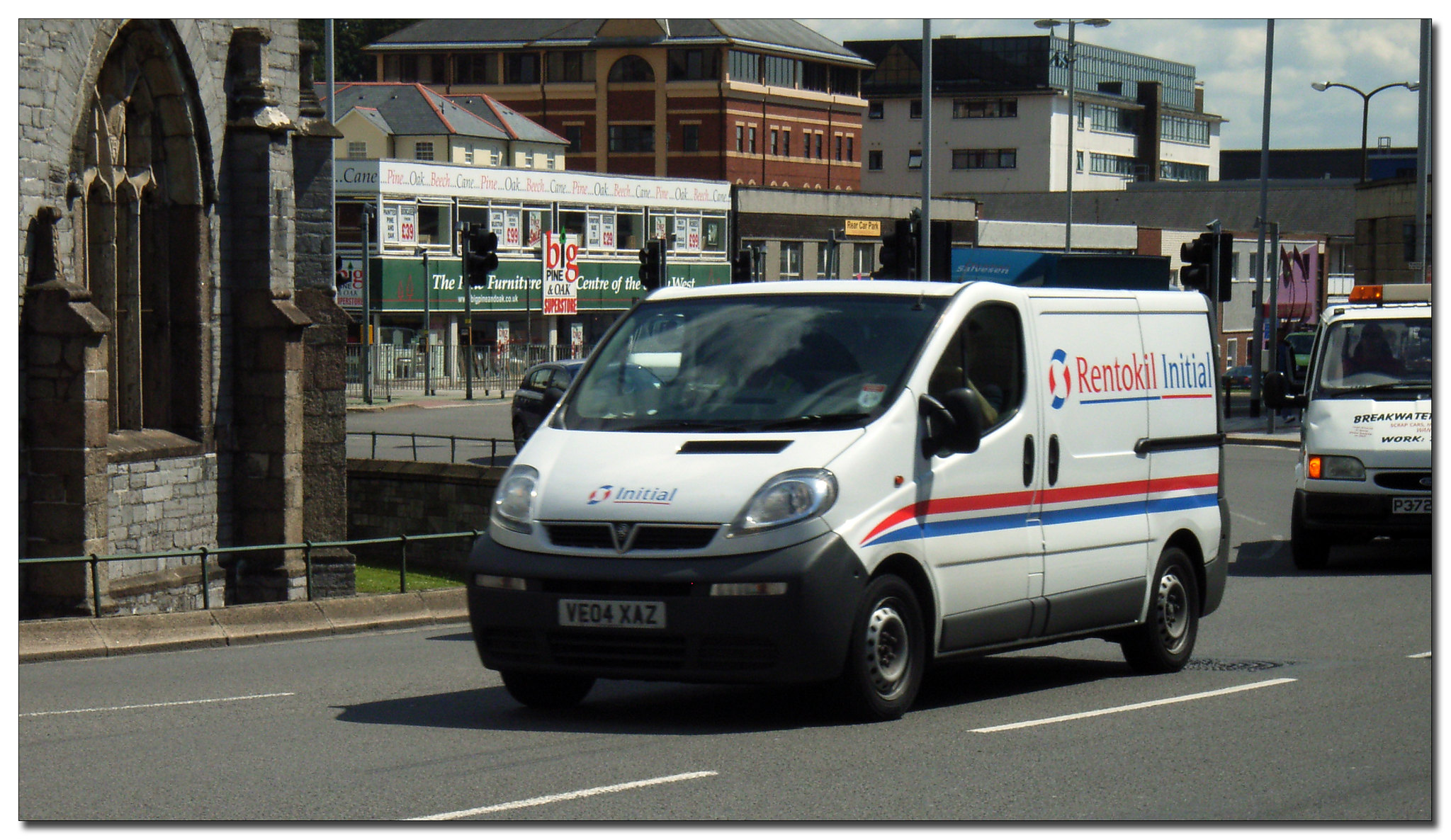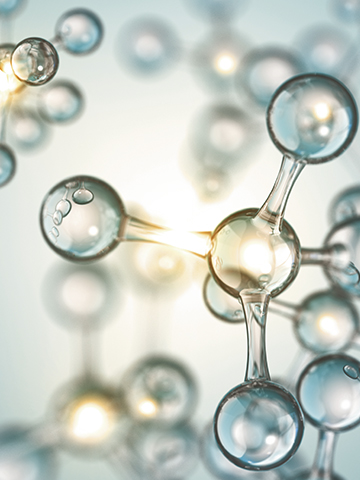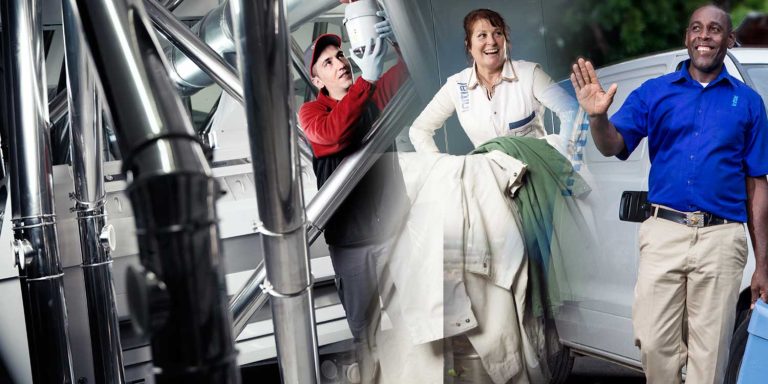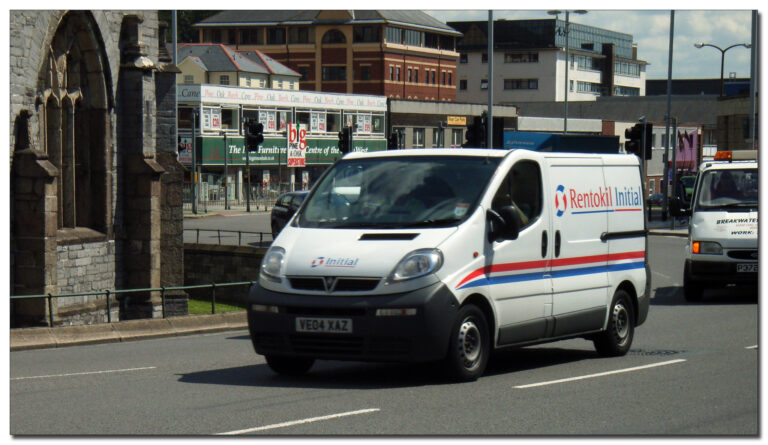Rentokil Initial PLC (LON:RTO) has announced its 2020 interim results.
2020 Interim Highlights (at CER unless otherwise stated)
● 1.0% increase in Ongoing Revenue (Q1 2020: +7.2%, Q2: -4.4%) despite major disruption from COVID-19 crisis across Group operations
● 1.0% growth in Pest Control (Q1 2020: +9.3%, Q2: -5.9%), reflecting our essential service status and ability to continue to serve customers during the crisis
● 10.5% growth in Hygiene (Q1 2020: +4.6%, Q2: +16.3%), strong global demand for hygiene products and disinfection services has more than offset washrooms service declines from temporary business closures
● International expansion of Hygiene category in 2020 – 20 new markets, including the US
● H1 Revenue from disinfection services of £49m – in addition to our existing c.1,000 Specialist Hygiene colleagues, we trained c.7,000 colleagues in H1 to provide this service alongside their existing roles in Hygiene, Pest Control and Ambius – now available in 66 countries
● 12.9% decline in Protect & Enhance (Q1: +1.9%, Q2: -27.3%), principally driven by weak performance from France Workwear (down 18.5% year on year)
● 9.4% decline in Ongoing Operating Profit reflecting a £23m increase in bad debt provision and additional costs of personal protective equipment (PPE)
● Strong Free Cash Flow of £143.5m, delivered through tight controls over costs, capex and working capital
● Liquidity headroom in excess of £800m following repayment of the Group’s revolving credit facility (RCF) in Q2 and COVID Corporate Financing Facility (CCFF) in July
● M&A:
- 8 businesses acquired in Q1: 7 in Pest Control, 1 in Hygiene – with combined annualised revenues of c.£19m. Cash spend on current and prior year M&A of £50.3m
- Capital allocation model reinstated for H2 with resumption of M&A programme – anticipated spend of at least £100m for the remainder of the year
● Dividend – no interim dividend but we would expect to propose a dividend for 2020 if trading continues in line with our expectations in H2
Andy Ransom, CEO of Rentokil Initial plc, said:
“We have delivered an excellent performance in H1, keeping our essential services on the road for our customers who remained open during the pandemic. We also moved at pace to develop new revenues to offset service shortfalls, particularly in our Hygiene business, and have taken decisive action on costs, with many of our people making personal sacrifices, and enabling us to contain the profit reduction on lower revenue in Q2. We have also tightly controlled costs, capex and working capital to deliver a very good performance on Free Cash Flow.
“Despite a severe global pandemic and associated country lockdowns, we delivered H1 ongoing revenues ahead of the same period last year. This is tribute to our 43,000 colleagues around the world, who have demonstrated a remarkable ability to adapt to an unprecedented change in their daily working environment, while remaining focused on delivering excellent customer service. On behalf of the Board, I would like to publicly thank all our colleagues for their commitment over the last few months, which has been nothing short of outstanding.
“While the COVID-19 pandemic is far from over and our thoughts remain with everyone affected, at Rentokil Initial we have moved from the Crisis Phase into the Recovery Phase. The majority of our colleagues are now back at work, we have repaid the Bank of England’s CCFF and our own RCF, and we have resumed our M&A programme.
“Our purpose at Rentokil Initial is Protecting People, Enhancing Lives and never has this been more important than in the last three months. Our Pest Control operations have been steady and reliable, supporting our customers through the crisis and into restart. Our Hygiene business, which was more impacted by customer shutdowns, has moved from being considered a low interest (but nonetheless required service) to arguably one of the world’s most important business categories. We are now expanding our Hygiene category into new countries as well as launching additional services. Further, Hygiene disinfection services are playing a vital role for customers as part of the restart period.
“While it is impossible to predict the future development of the COVID-19 pandemic, or its economic impact, ours is a high quality and resilient business and we are entering the second half of 2020 with positive momentum.”
Non-GAAP measures
This statement includes certain financial performance measures which are not GAAP measures as defined under International Financial Reporting Standards (IFRS). These include Ongoing Revenue, Ongoing Operating Profit, Adjusted profit before tax and Free Cash Flow. Management believes these measures provide valuable additional information for users of the financial statements in order to understand the underlying trading performance. Ongoing Revenue and Ongoing Operating Profit represent the performance of the continuing operations of the Group (including acquisitions) after removing the effect of disposed or closed businesses, and enable the users of the accounts to focus on the performance of the businesses retained by the Group, and that will therefore contribute to the future performance. Ongoing Profit and Adjusted profit before tax exclude certain items that could distort the underlying trading performance. Ongoing Revenue and Ongoing Operating Profit are presented at CER unless otherwise stated. An explanation of the measures used along with reconciliation to the nearest IFRS measures is provided in Note 13 on page 24.
Joint ventures: the term ‘joint venture’ is used to describe the Company’s 57% ownership of Rentokil PCI, however our interest in PCI has been consolidated in our Financial Statements.
Summary of performance (at CER unless stated otherwise)
Ongoing Revenue rose by 1.0% to £1,294.7m in H1 (Q1 2020: +7.2%, Q2: -4.4%), a very good performance despite the disruption from the COVID-19 crisis across our Group operations. Total Revenue of £1,302.4m declined by 0.1% and by 0.6% at actual exchange rates. Ongoing Operating Profit declined by 9.4% during the half to £140.5m, reflecting an increase in bad debt provisions of £23m and additional costs of personal protective equipment. We delivered a very good Free Cash Flow performance in the half of £143.5m reflecting tight control over costs, capex and working capital.
Revenue (at CER)
Regional analysis of performance in Q1 and Q2 vs. 2019
Ongoing Revenue at CER
| Q1£m | Q2£m | Q1% change | Q2% change | |
| France | 74.5 | 57.4 | (1.4) | (25.6) |
| Benelux | 23.1 | 22.6 | 4.6 | (3.4) |
| Germany | 26.3 | 29.1 | 7.3 | 7.9 |
| Southern Europe | 33.6 | 33.3 | 2.6 | (1.6) |
| Latin America | 15.5 | 15.2 | 23.7 | 3.1 |
| Total Europe | 173.0 | 157.6 | 3.3 | (10.5) |
| UK & Ireland | 77.3 | 59.6 | 3.4 | (21.2) |
| Rest of World | 41.0 | 37.6 | 9.8 | (4.5) |
| UK & Rest of World | 118.3 | 97.2 | 5.5 | (15.5) |
| Asia | 63.6 | 56.2 | 12.2 | (5.5) |
| North America | 241.6 | 299.8 | 10.4 | 5.7 |
| Pacific | 47.9 | 39.5 | 3.2 | (14.5) |
| Ongoing operations | 644.4 | 650.3 | 7.2 | (4.4) |
Category analysis of performance in Q1 and Q2 vs 2019
Ongoing Revenue at CER
| Q1£m | Q2£m | Q1% change | Q2% change | |
| Pest Control | 411.6 | 424.2 | 9.3 | (5.9) |
| – Growth | 345.8 | 373.6 | 8.6 | (3.7) |
| – Emerging | 65.8 | 50.6 | 13.3 | (19.3) |
| Hygiene | 139.8 | 157.4 | 4.6 | 16.3 |
| Protect & Enhance | 93.0 | 68.7 | 1.9 | (27.3) |
| Ongoing operations | 644.4 | 650.3 | 7.2 | (4.4) |
Our Pest Control category grew by 9.3% in Q1, declined by 5.9% in Q2 reflecting temporary business shut downs, and delivered overall growth of 1.0% for the half. This resilient performance reflects our essential service status in the majority of our markets (allowing our frontline services to continue to operate), the largely contractual nature of the portfolio and the fact that it is has been somewhat less impacted by temporary business shutdowns than our Hygiene and Protect & Enhance (P&E) categories.
Our core Hygiene operations, also designated essential services, have been more impacted than Pest Control because of our inability to perform regular weekly washroom services for a substantial number of customers (particularly in the Hospitality and Leisure sector) which closed their premises during the crisis. Shortfalls in washrooms service provision have been more than offset however by strong global demand from both Hygiene and Pest Control customers for hygiene products (such as hand sanitisers) and other hygiene services including general & specialist biohazard disinfection, deep clean services and precautionary disinfection risk assessment surveys. As a result, Ongoing Revenue increased by 10.5% in H1 (Q1: +4.6%, Q2: +16.3%), with disinfection revenues in H1 amounting to £49m.
Ongoing Revenue in our Protect & Enhance category declined by 12.9% in H1 (Q1: +1.9%, Q2: -27.3%), principally driven by France Workwear which was significantly impacted by disruption in the HORECA sector, and which saw a revenue decline of 18.5% in H1. Our Ambius and Property Care businesses also declined during the period by 6.2% and 26.6% respectively, reflecting the more discretionary nature of Ambius products and the continued weakness in the UK housing market impacting our Property Care business.
Revenues have been recognised in compliance with IFRS 15 and reflect invoices raised less credit note provisions. We consider our approach to be prudent and do not expect any revenue reversals in H2.
Greater detail of how our categories were impacted by the COVID-19 crisis can be found in the regional performance reviews on page 6 and 7 and in the Strategic Review on pages 7 to 11.
Profit (at CER)
Profits were impacted in the first half by the impact of COVID-19 related net revenue reductions in Q2, with Ongoing Operating Profit falling by 9.4% in H1. Significant actions were taken to mitigate the revenue reductions with cost savings in the half of £87m. These savings were offset however by an increased bad debt provision of £23m, increased costs of personal protective equipment of £8.8m (predominantly driven by the need for comprehensive PPE during the provision of disinfection services), and increased restructuring costs (of £5m versus £3m in the prior year).
Our bad debt provision in the half reflects the increased risk of bad debts as a result of the COVID-19 crisis. We note that insolvencies to date have been low, however we have provided based on the risk of future insolvencies.
Adjusted profit before tax at actual exchange rates of £125.6m, which excludes the impact of one-off items, fell by 11.3%. Adjusted interest of £17.7m was £5.2m lower than in the prior year, reflecting lower interest charge on borrowings and despite the impact of drawing on our £550m RCF.
One-off items were a £4.5m net credit at actual exchange rates which includes £7m of acquisition and integration costs, a cash receipt of £2m related to a prior-year disposal, a non-cash credit of £7m relating to the closure of a pension scheme in North America and profit on the sale and leaseback of a property of £2m.
Cost reduction, cash preservation and liquidity (at AER)
Our key priority at the peak of the crisis was the preservation of the ongoing cash flow of the business and we therefore identified £100m+ of cost savings and £400m of cash savings for 2020. These measures, some of which were temporary, have enabled us to be highly cash generative in the first half of the year. Given our positive trading position and strong balance sheet, we now intend to reinstate our capital allocation model and to invest in the Recovery Phase of the crisis, steadily increasing our levels of capex and resuming M&A.
Cost savings of £87m during the half included salary reductions across senior management grades, cancellation of H1 bonus schemes and postponement of the 2020 LTIP grant, as well as tight control over discretionary spend. Cash savings included withdrawal of dividend payments and suspension of our M&A programme, reducing cash tax payments in line with local statutory schemes and tight control over capital expenditure.
We have heightened our focus on working capital management in order to optimise inventory levels and mitigate the increased risk around the delay and non-payment of receivables. Collection of receivables has been impacted by the crisis and our collection rate reduced by 9.0% versus last year during the early months of the crisis. The trend has improved towards the end of Q2, with the June collection rate up 2% on the prior year, with some variation across the regions. In line with local statutory schemes we deferred £73m of payments for taxes and social security costs. The majority of these amounts will be paid in H2. The H1 impact of these measures is Free Cash Flow delivery of £143.5m.
Cash spent on current and prior year acquisitions totalled £50m, with proceeds from disposals of £2m. The reduced level of M&A, combined with the suspension of dividend payments and the Free Cash Flow noted above, resulted in an underlying decrease in net debt of £95m. Sterling has weakened significantly in H1 and this was the main reason for an increase in debt of £124m from foreign exchange translation and other items. Consequently, taking all of the above into account, there was an overall increase in net debt of £29m and closing net debt of £1,102m.
Dividend
As announced on 25 March 2020, we made the very difficult decision to suspend dividend payments and therefore we will not be paying an interim dividend. However, we are a strong business, now in the Recovery Phase, and would expect to propose a dividend for 2020 if trading continues in line with our expectations in H2.
Funding
On 16 June 2020 the Group repaid £550m drawn under its RCF at the start of the COVID-19 pandemic. This amount can be re-drawn at any time up to and including 22 July 2024. On 27 July 2020 the Group repaid the £600m borrowed under the Bank of England’s CCFF scheme. All RCF and CCFF repayments were made using cash. Following the repayment of the RCF and CCFF the Group has liquidity headroom in excess of £800m. As at 30 June 2020 the net debt to EBITDA ratio was 1.9x, in line with the ratio at 31 December 2019. We remain committed to maintaining a BBB credit rating and are confident in doing so.
M&A
Prior to suspending our M&A activity in Q2, we acquired eight businesses – seven in Pest Control (including three in North America and a new market entry in Tanzania) and one in Hygiene – with combined annualised revenues of c.£19m in the year prior to purchase for a cash spend of £29m. In addition a further £23m of deferred payments were made relating to prior year acquisitions bringing the total cash outflow, net of cash acquired, to £50m.
While the COVID-19 pandemic is far from over, we have moved from the Crisis Phase into the Recovery Phase and are therefore reinstating our capital allocation model and resuming M&A activity. We are engaging with pipeline opportunities and, as before, will continue to target high-quality bolt-ons in areas where we can build density that have demonstrated their resilience through the pandemic. While M&A remains an opportunistic activity with no guarantees or certainties, we would expect to spend at least £100m on acquisitions for the remainder of this year.
Outlook for H2 2020
Given the prevailing uncertainties around the COVID-19 situation and its impact on our performance, we withdrew guidance in our statement on 25 March 2020. Since then, we have traded resiliently in H1 with the sequential trend through Q2 encouraging. Some significant uncertainties remain, in particular with regard to how the demand for our services will unfold as more countries emerge from lockdown and as businesses deal with the economic reality post COVID-19, and this therefore makes providing specific guidance for 2020 and beyond difficult at this time. Based on the items below, and notwithstanding continued uncertainty, we would currently expect the outcome for the full year to be moderately better than anticipated.
Profit:
● Revenues were down 12.1% in April due to COVID-19, but rose by 4.2% in June. Assuming a continued gradual resumption in business activity we expect to make further progress in the second half. However, there is a risk that a second wave of the virus and/or economic pressures arising from the virus will impact revenues adversely;
● Revenue from disinfection services in H1 amounted to £49m. These revenues are directly related to the impact of the virus and hence it is difficult to forecast the quantum of these for H2 and beyond;
● We generated cost savings of £87m in the first half as a response to the crisis. Following from our expectation of a reduced impact of the virus in H2, we are looking to return colleagues to work and restore normal salaries. Consequently H2 cost savings are expected to reduce to £35m;
● As noted above, the impact of the virus on the global economy is impossible to forecast. We have increased our provision for bad debts in H1 by £23m against receivable balances at the half year and estimate that we will require a further £15m increase in the provision in H2; and
● Current economic uncertainty around the virus, as well as Brexit arrangements, has resulted in a significant weakening in sterling in H1. As a result, based on current exchange rates, there would be a minimal FX impact on our 2020 profits compared with the £10m to £15m adverse impact from foreign exchange previously guided to at the time of our preliminary results on 27 February 2020.
Cash:
Similar to profit guidance, providing guidance on aspects of cash flow is also challenging given the uncertainty created by COVID-19. However we have more control over certain items, such as investment in capex and M&A:
● Working capital outflow for the year is expected to be in the range of £10m to £20m – while working capital flows have been strong in the first half, we expect that there will be a net outflow in the second half;
● Net capex is estimated to amount to £225m to £235m – given our strong cash performance in H1, we are planning to increase our investment levels in H2 and therefore our guidance on this has increased;
● Cash interest is expected to be in the region of c.£40m – this reflects the carry costs of holding the RCF and CCFF during Q2, both of which are now repaid;
● Cash tax payments of £50m to £60m – given our strong cash performance in H1 we now restore our original guidance for cash tax payments for the year; and
● M&A expenditure of £100m+ in H2 – having resumed our M&A activity we plan to spend at least £100m on acquisitions during the remainder of the year.
A presentation of Rentokil Initial’s 2020 interim results will be held today via a webcast at 9.00am. To access the webcast, please go to our website, www.rentokil-initial.com. The formal presentation of results will be followed by Q&A. To ask a question, please dial:
From the UK: 020 3936 2999
All other locations: +44 20 3936 2999
Access code: 282756
An operator will register your details and put you through to ask questions in turn. To listen only, please remain on the webcast.








































